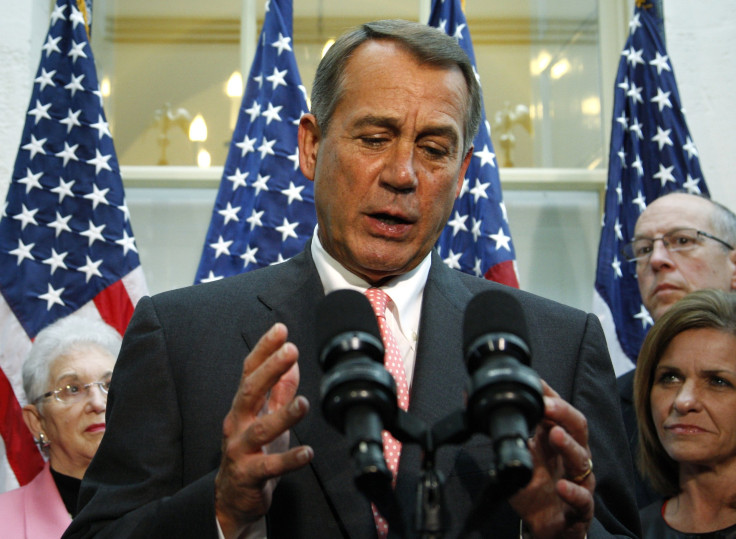Government Shutdown 2013: Boehner Chooses Senate Deal Over Global Economic Crisis, Reports Say

When Republican House Speaker John Boehner realized Tuesday evening that he didn’t have the votes to pass the House version of a deal to raise the debt ceiling and end the government shutdown, he had two options left: Sink the world economy by not bringing the Senate's plan to a vote, or avert an unprecedented crisis by going around his caucus with Democratic votes.
Reports Wednesday morning are that Boehner has chosen the latter, according to National Review’s Robert Costa:
Per Sen sources, Boehner has agreed to take up the Senate's plan and allow it to pass with Dem votes.
- Robert Costa (@robertcostaNRO) October 16, 2013
This means that once a Senate plan is finalized, expected within hours, Boehner will bring it to a vote in the House even though it won’t have the support of a majority of the GOP caucus. The plan is likely to pass with the support of Democrats and some number of moderate Republicans. To get over procedural hurdles, Boehner has also reportedly agreed to have the House vote before the Senate. If either of these things don't happen, then it will be time to panic. Otherwise, the brinkmanship is over and a crisis has been averted, for now.
Senate negotiations stalled Tuesday afternoon when Boehner announced that a compromise being hashed out between Senate Majority Leader Harry Reid, D-Nev., and Senate Minority Leader Mitch McConnell, R-Ky., was not acceptable in the House, and that his caucus would produce and pass an alternative plan. But by Tuesday evening, Boehner realized that he didn’t have enough votes in his caucus for his own plan and the vote never took place. The House plan, although drafted in order to appease the far-right Republican faction, didn’t go far enough for Republicans who want to see significant delays or changes to implementation of the health care reform law as well as spending cuts.
“Put me in the ‘no deal’ is better than a ‘bad deal’ category,” Rep. Thomas Massie, R-Ky., tweeted Tuesday when the House deal went up in flames.
On the 16th day of the government shutdown, Democrats will provide the key votes for funding the government and raising the debt ceiling -- something they could have done to avert a shutdown in the first place.
© Copyright IBTimes 2024. All rights reserved.












